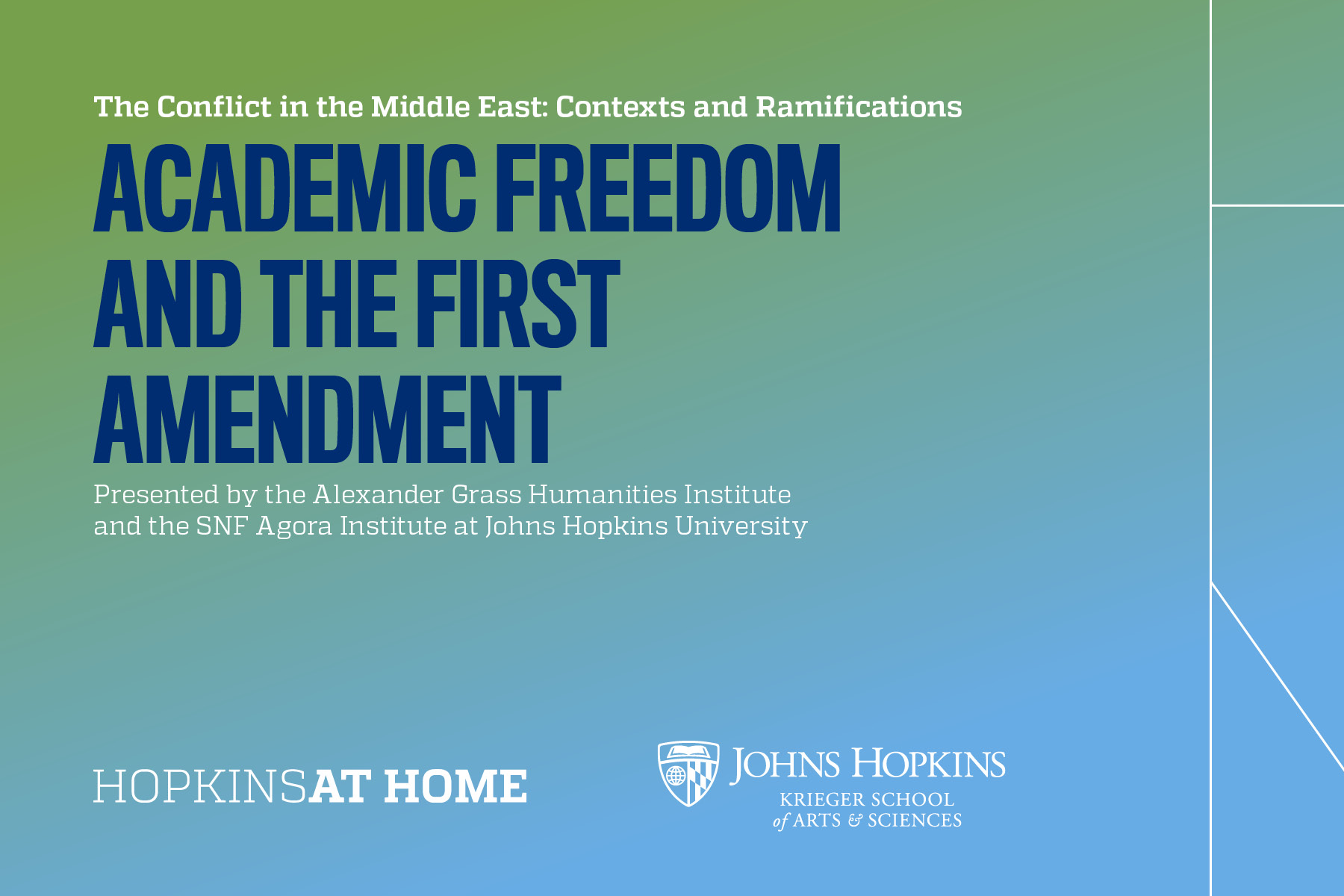Academic Freedom and the First Amendment

• Presented by the Alexander Grass Humanities Institute, the SNF Agora Institute at Johns Hopkins, the Krieger School of Arts & Sciences and Hopkins at Home •
• Featuring Dr. Cass Sunstein of Harvard University, Dr. Michael Roth of Wesleyan University, and David French of the New York Times; moderated by Sarah Wildman •
In this free virtual event, Dr. Michael Roth (President of Wesleyan University), Dr. Cass Sunstein (Professor at Harvard Law School), and David French (opinion columnist for The New York Times) explore the tensions between freedom of speech and academic freedom and examine the challenges faced by academic institutions, faculty, and students in balancing open discourse with institutional values and external pressures. Topics include the impact of protest movements on campus climates, the role of social media in amplifying or silencing voices, and the implications for academic integrity and intellectual diversity. The conversation will also address broader societal debates about the limits of free expression in politically charged environments.
To leave a question about this topic for our speakers, please click here.
